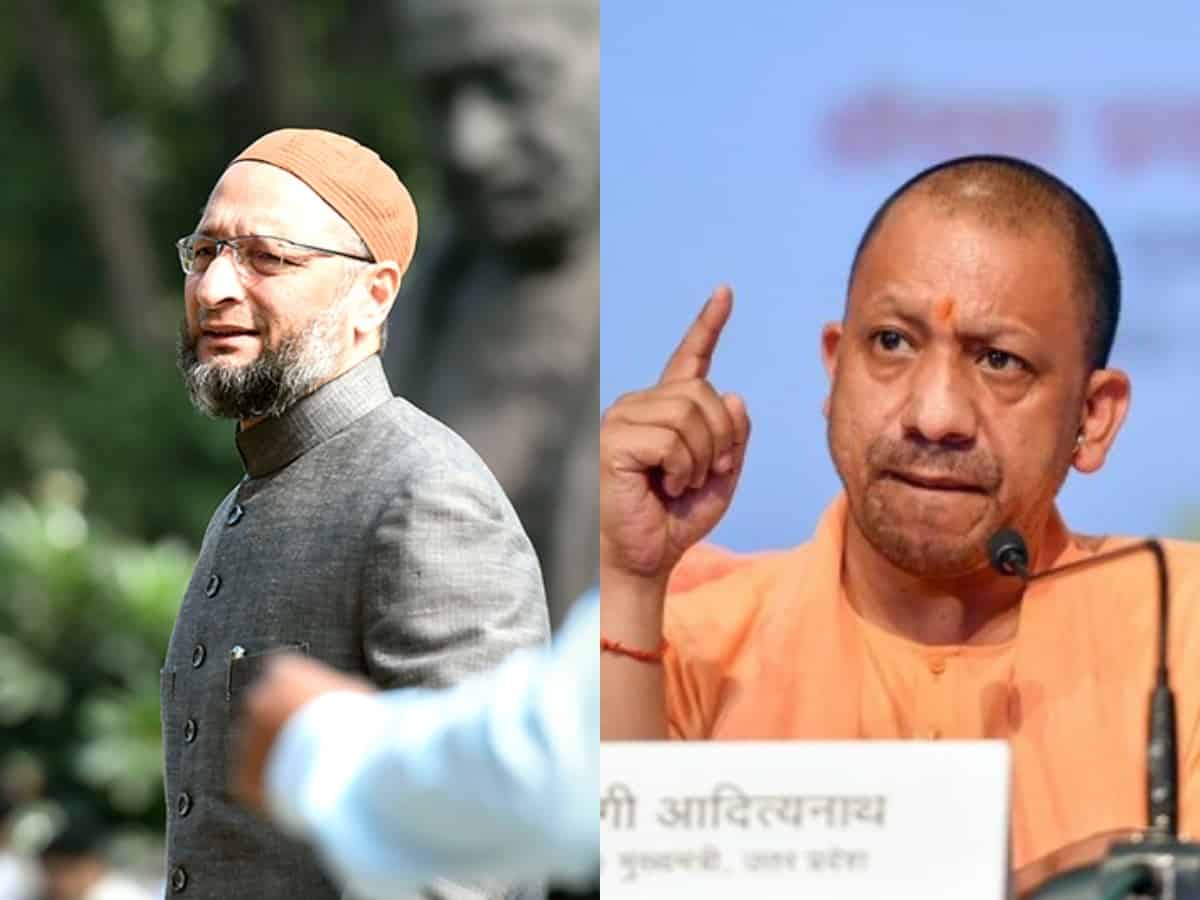Hyderabad: Over the last few weeks, a lot has been written about the All Indian Hyderabad Majilis-e-Ittehadul Muslimeen’s (AIMIM) electoral trajectory in the upcoming Uttar Pradesh state elections. AIMIM, headed by Hyderabad Lok Sabha member of Parliament Asaduddin Owaisi, is part of the Bhagidari Sankalp Morcha, along with the Om Prakash Rajbhar-led Suheldev Bhartiya Samaj Party (SBSP).
Over the past month, Rajbhar took everyone by surprise by saying that no deal or seat-sharing was discussed between him and the AIMIM. His words were a response to a local AIMIM leader’s claims that his party would contest 100 out of the 403 seats. So far, Owaisi himself has not said anything clearly, but has said he is open to alliances.
Therein lies the truth. As if now, there is uncertainty over what or how the AIMIM will do in the Uttar Pradesh elections, given the embarrassing situation the Hyderabad-headquartered faced in the West Bengal (WB) elections earlier this year. Owaisi’s party was left to dry by Abbas Siddiqui of the Furfura Sharif Dargah, who decided to go with the Left-Congress alliance at the last minute. AIMIM ended up contesting only seven out of 294 seats in finally.
The underlying aspect in West bengal was the fact that the state’s nearly 30% Muslim population stuck with Mamata Banerjee’s ruling Trinamool Congress (TMC), due to which the party managed to win well over 200 seats. If a similar situation arises in Uttar Pradesh, wherein the Muslim votes consolidate behind Akhilesh Yadav’s Samajwadi Party (SP), then the AIMIM’s presence won’t make much of a difference.
However, the ruling Bharatiya Janata Party’s (BJP) blatant politics of polarization, which often targets Muslims, it will be difficult for even the SP to put up a strong narrative that can counter UP chief minister Adityanath and his brand of communal politics. With the state reeling from heavy casualties during the second wave of COVID-19, it is to be seen if the BJP suffers due to it.
“Right now it is too early to decide how many seats we will contest, as we have to see what kind of a situation arises. We will have to wait and watch as set-sharing won’t be decided now itself. The BJP, which is afraid of losing, is also trying to reign in all smaller parties, like that of Rajbhar. Because it does not want votes to get split,” said an AIMIM leader, who did not want to be quoted.
He added that the AIMIM might finally end up contesting around 50 seats more or less depending on the ground situation closer to the election sin Uttar Pradesh.
Moreover, in West Bengal, aside from the alliances, the AIMIM also suffered setbacks in the form of local leaders deserting the party. It was unlike in Bihar, wherein the AIMIM managed to draw dissidents from parties like the RJD and JD(U), and built a strong team. It paid-off, and Owaisi walked away smiling with five MLAs at the end of last year’s Bihar elections.
“If it is going to be a four-way contest between parties, then the BJP Will win a landslide victory. But if it is a two-way fight, then it will be help the Samajwadi Party. It is not about winning the election as well, because the entry of the AIMIM into a region will divide voters. You can see the kind of reactions Owaisi’s remarks are already drawing, even from Yogi. If the narrative becomes Hindu versus Muslim, then development takes a back seat,” said political analyst Palwai Raghavendra Reddy.

